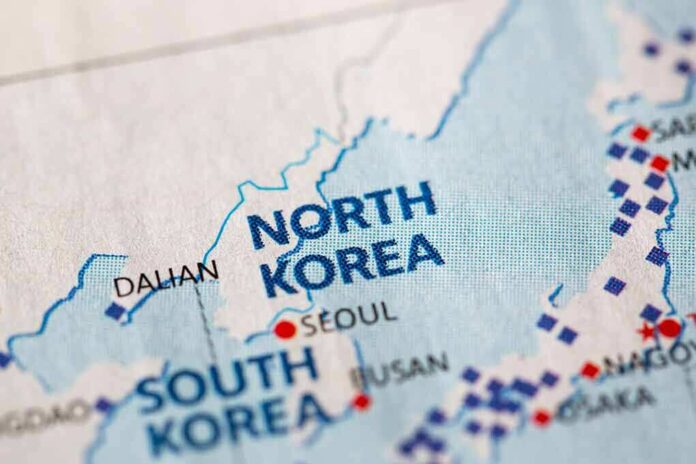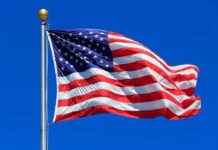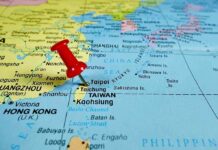
Six American citizens find themselves in a diplomatic quagmire after South Korean authorities detained them for attempting to send 1,600 plastic bottles containing rice, Bibles, and U.S. currency to North Korea, highlighting the perilous intersection of humanitarian intentions and international security protocols.
Key Takeaways
- Six Americans were detained in South Korea after attempting to send bottles filled with rice, miniature Bibles, dollar bills, and USB sticks toward North Korea from Gwanghwa Island, a restricted border area.
- The Americans are being investigated for potentially violating South Korea’s law on safety and disaster management, not the recently overturned anti-leafleting law.
- This incident occurs amid President Lee Jae Myung’s efforts to restart dialogue with North Korea and reduce border tensions, which have been stalled since 2019.
- The contents of the USB sticks have not been disclosed, raising concerns about the true nature of the materials being sent.
- The U.S. Embassy in South Korea has yet to comment on the detention of its citizens, creating diplomatic uncertainty.
Detained on Restricted Island
The Americans were apprehended early Friday morning on Gwanghwa Island, a designated danger zone near the border with North Korea. According to South Korean police, the group was attempting to release 1,600 plastic bottles containing rice, miniature Bibles, $1 bills, and USB sticks into the sea, presumably to float across the maritime border. This area is strictly controlled due to its strategic location and proximity to North Korean territory, making any unauthorized activity there particularly sensitive from a security standpoint.
“SEOUL — Six Americans were detained Friday in South Korea for trying to send 1,600 plastic bottles filled with rice, miniature Bibles, $1 bills and USB sticks toward North Korea by sea, police said.”
Six Americans were detained Friday in South Korea for trying to send 1,600 plastic bottles filled with rice, U.S. dollars bills and Bibles toward North Korea by sea, police said. https://t.co/yzFlRp6B0v
— ABC News (@ABC) June 27, 2025
Legal Implications and Investigation
The detained Americans now face investigation for potentially violating South Korea’s law on the management of safety and disasters, not the controversial anti-leafleting law that was overturned in 2023. This distinction is important because the South Korean Constitutional Court ruled that criminalizing the sending of materials to North Korea violated free speech protections. However, entering restricted military areas and creating potential security risks still constitute serious offenses under current South Korean law, regardless of the humanitarian intent behind the actions.
“The US suspects were apprehended in the early hours of Friday morning after they were caught trying to release the bottles into the sea from Gwanghwa island, near a restricted front-line border area with North Korea, South Korea’s official Yonhap news agency reports,” Yonhap news agency.
The investigation is particularly concerned with the undisclosed contents of the USB sticks included in the bottles. South Korean authorities have not revealed what information these devices contained, which raises questions about whether they might have included political messages or media that could be deemed provocative by the North Korean regime. The inclusion of religious materials like miniature Bibles is also problematic, as North Korea strictly controls religious practices and considers Christian evangelism a serious threat to state ideology.
Historical Context and Political Tensions
This incident occurs against a backdrop of historical tensions and complex diplomacy on the Korean Peninsula. Activists have long used bottles and balloons to send anti-North Korean propaganda, South Korean media, and aid across the border. These activities have frequently provoked angry responses from North Korea, including the launching of trash-filled balloons into South Korean territory. The practice was temporarily banned from 2021 to 2023 under previous administrations, highlighting the delicate balance South Korean leaders must maintain between freedom of expression and national security.
President Lee Jae Myung’s administration has been working to prevent such border activities in hopes of reducing tensions with North Korea and restarting diplomatic talks, which have been stalled since 2019 following the collapse of U.S.-led denuclearization negotiations during President Trump’s administration. Lee has already taken steps to ease tensions by halting anti-Pyongyang loudspeaker broadcasts along the border, demonstrating his commitment to creating conditions for renewed dialogue between the two Koreas.
South Korean authorities detain 6 US citizens who were attempting to send an estimated 1,300 plastic bottles filled with rice, US dollar bills and Bibles to North Korea by sea, according to news reports ⤵️ https://t.co/zuXHGid58H
— Al Jazeera English (@AJEnglish) June 27, 2025
Diplomatic Implications
The detention of six American citizens creates potential diplomatic complications between the United States and South Korea. As of now, the U.S. Embassy in Seoul has not issued any official statement regarding the incident, leaving questions about how the Biden administration will respond to the situation. Historically, when American citizens are detained abroad, especially in politically sensitive contexts, it often requires careful diplomatic negotiation to resolve the situation while respecting the host country’s laws and sovereignty.
“Two South Korean police officers confirmed the detentions of the six with The Associated Press news agency but gave no further details,” The Associated Press news agency.
The incident highlights the ongoing challenges in providing humanitarian aid to North Korea, which suffers from chronic food shortages. While the intentions of the detained Americans may have been charitable, their methods circumvented official channels for humanitarian assistance and potentially undermined South Korea’s diplomatic strategy. This case serves as a stark reminder that even well-meaning actions can have serious consequences when they intersect with complex geopolitical situations, especially in one of the world’s most heavily militarized borders.












